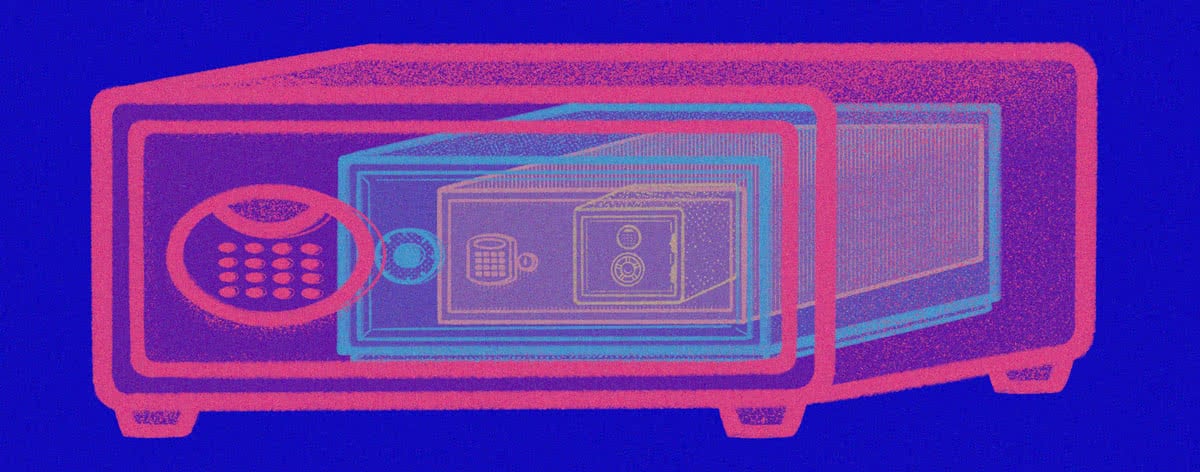

Why Open an Account?
Up until now, you’ve probably kept all of your money in your wallet or a jar on your dresser. While that may work when you’re first starting out, you’ll quickly realize that these aren’t exactly the safest places to store your hard-earned cash. Keeping your money at a bank or credit union is free and safe, and you can view your account totals online.
Another benefit of opening an account is that your money can grow with interest. Basically, a financial institution pays you a percentage of your total balance just for keeping money in your account. While earnings from interest won’t replace regular income, it means that your money is growing little by little without you having to do a thing.
Finally, depending on the type of account that you open (such as a checking account or a money market account), you may be able to get a debit card. When you buy things with the card, the amount will automatically be subtracted from your account. In other words, you won’t have to worry about carrying around cash, you’ll simply need to be aware of how much is available in your account.
Types of Accounts
Banks and credit unions offer different types of accounts that are specifically made to fit various goals and purposes. Some of the most common account types include:
- Checking Account: With this account, you can spend money directly with a debit card or check. You can make withdrawals if you need cash.
- Savings Account: This account (surprise surprise) is all about saving. Savings accounts offer either simple or compound interest. This means that you’ll earn a percentage either based on the initial amount you deposited or how much you’ve deposited plus how much you’ve earned. You can’t spend money from this account directly, but you can transfer funds to another account or visit a branch or ATM to withdraw cash.
- Money Market Account: This account is like a combination of a checking and savings account. You can spend from it directly and earn interest, but the amount of transactions you can make are limited, and you usually need more money initially in order to open one. The amount needed could range from $100 to over $5,000, it just depends on the institution and specifics of the account.
- CD (Certificate of Deposit) : A CD is a long term savings option that offers higher interest rates than a regular savings account. In exchange for those higher interest rates, you agree to leave the money in the bank or credit union for a certain amount of time. If you need to access it sooner, you’ll lose the interest that you would have earned.
The kind of account you start with will depend on your goals and what your bank or credit union offers. If you’re under 18, your options may vary slightly. Some of the most common options for minors include joint or custodial accounts. These are accounts that you open with a parent or guardian. Both you and whoever you open the account with usually have access to deposit or withdraw money and certain penalties or requirements may be waived.
Direct Deposit
If you have a job, another serious benefit of opening an account is the option for direct deposit, if your employer offers it. This means rather than getting a physical paycheck, money will automatically be deposited into whatever account you choose. This option gives you quicker and easier access to the money you earn. When you start a new job, you’ll likely have the option to set it up or, if you’re already working, you can talk to your employer about changing to direct deposit.
What You Need to Open an Account
Opening an account at a bank or credit union is easy. You’ll generally need an initial deposit (some money), a parent or guardian if you’re under 18, and an ID (such as a driver’s license, social security card, or birth certificate). Some banks or credit unions let you do everything online, though you may prefer to go into a branch so that you can get all of your questions answered and direct guidance about what will work best for you.
Neither Banzai nor its sponsoring partners make any warranties or representations as to the accuracy, applicability, completeness, or suitability for any particular purpose of the information contained herein. Banzai and its sponsoring partners expressly disclaim any liability arising from the use or misuse of these materials and, by visiting this site, you agree to release Banzai and its sponsoring partners from any such liability. Do not rely upon the information provided in this content when making decisions regarding financial or legal matters without first consulting with a qualified, licensed professional.

